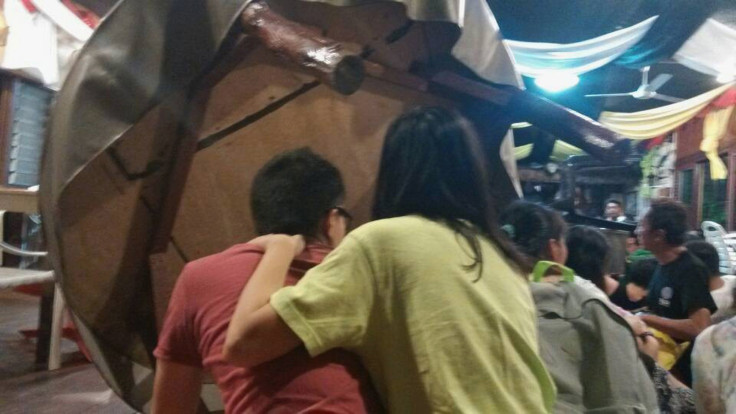One More Problem In The South China Sea: A Chinese Hostage

A mysterious armed attack and kidnapping at a Malaysian resort on Wednesday night will likely further fray the unraveling relationship between China and other countries in the South China Sea, namely Malaysia and the Philippines.
The South China Morning Post reported that a group of five or six armed kidnappers raided a diving resort in Malaysia’s eastern Borneo region, a popular tourist destination, on Wednesday evening and left by boat minutes later with two hostages. The hotel’s manager said a 28-year-old Shanghai woman, Gao Huayun, and a 40-year-old Filipino hotel receptionist, Marcy Dayawan, were taken by authorities suspected to be linked to the Islamist militant group Abu Sayyaf, based in the Philippines.
China’s Foreign Ministry spokesman Hong Lei addressed the kidnapping in a news briefing in Beijing, saying the Chinese consulate in Borneo demanded that “local police fully put into effect rescue work on the basis of guaranteeing safety and to ensure the safety of Chinese tourists there.”
China and Malaysia are already experiencing a rocky relationship following the search for the missing Malaysian Airlines flight 370, which was bound for Beijing, China. More than two-thirds of the plane’s passengers were Chinese, and China took one of the leading roles in the search for survivors, or at this point, for the remains of the plane.
Thousands of Chinese have vowed to boycott travel to Malaysia as a symbol of their dissatisfaction with the Malaysian government’s handling of the missing plane.
The boycott, which initially began on popular Chinese social media platform Weibo, quickly picked up steam. Popular travel booking websites even vowed to remove Malaysian Airlines flight options from their searches indefinitely in response to the online conversation. There is no doubt that the hostage situation has now made many Chinese even more disinclined to travel to Malaysia.
“Why would anyone want to go there now,” one blogger wrote on Weibo. “Will how they handle this situation match the way the missing plane was handled?”
“Can we even trust authorities to help get the hostages back?” another blogger asked.
Beyond that, the hostage situation will also likely fuel anger between China and the Philippines. The two countries have been engaged in heated territorial disputes in the South China Sea. During the search for the missing commercial jet, when it was thought that it had crashed in the South China Sea, they both took a break from aggressively staking their claims over the resource-rich Spratly Islands. But as the search moved toward the western Australian coast and southern areas of the Indian Ocean, both sides have gone back to reiterating their unwavering claims, and the smallest event could trigger unwanted conflict.
As the two nations face off in the South China Sea, with China strategically placing ships to block Filipino supply ships, any political ammunition given to China could elicit a grab for the islands.
“The danger really is a short, sharp conflict due to miscalculation,” Chito Sta. Romana, former ABC News Beijing bureau chief and a native Filipino, said at a forum on "Understanding 21st Century China." “The idea for us to make a mistake -- to ram their ship, to arrest a fisherman, to fire at a fisherman -- if we do any of those, I think we lose an island,” Sta. Romana added.
“The Chinese will continue to probe the weak spots, and if they can achieve it, they would want to control all the disputed islands before a decision [by the arbitration committee on the law of the sea] is made.”
While no terrorist groups have taken responsibility for the kidnapping, many believe the al-Qaeda-linked Abu Sayyaf is a likely suspect. Based in the southern Philippines, the group is notorious for targeting tourists in the region. In December, it kidnapped a Taiwanese couple, killing the husband.
© Copyright IBTimes 2025. All rights reserved.






















